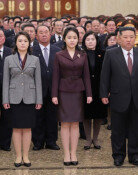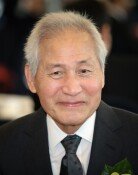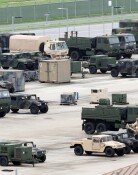[Opinion] Selling the Nations Technology
[Opinion] Selling the Nations Technology
Posted October. 26, 2004 23:08,
Mun Ik-jeom, who smuggled cotton seeds from the Yuan Dynasty into the Goryeo Dynasty when the Goryeo dynasty almost came to an end, is called Mokmyeon-gong (the great official for cotton cloth) because Mun made a great contribution to the rapid distribution of cotton plants in the dynasty, thereby helping improve the economic conditions of farmhouses, its clothing culture, and quality of lives. In an agricultural society, the development of new breeding and crop methods is a top industrial secret. In this context, Mun Ik-jeom, who smuggled cotton seeds hidden in a brush handle to shun Yuans supervision, can be called Koreas first industrial spy.
However, if Mun Ik-jeom were a contemporary, he wouldnt be able to spread cotton seeds even though he succeeded in smuggling them. The United States Department of Agriculture, in cooperation with a gene manipulation company, recently invented a new breed of a cotton plant that can be cultivated but produces no seeds. If farmers, after cultivating this, try to collect seeds, nothing will remain in their hands because at the time when the seeds mature, manipulated genes will impede protein composition in the seeds that is essential for germinating. Therefore, farmhouses have to purchase manipulated seeds repeatedly if they want to continue farming.
With increasing transactions of high-tech productions, each country is striving to foster high technology and to block information leakage to other countries. Such a struggle, between those who try to keep technology and those who try to steal the technology is almost like a battlefield of death. The number of cases that were caught by the National Intelligence Service at the stage of attempting since 1998 is a whopping 51. This year alone, the number is already as high as 11. Among them, information technology sectors such as semiconductors, cellular phones, and plasma display panels (PDP) account for 73 percent. If new technology developed by spending an enormous amount is drained out to other competitors, it will not only exacerbate national economy woes, but also will threaten national security.
Recently, a new strategy is becoming popular that recruits outstanding researchers on the condition that they can enjoy either the conspicuous benefits of large annual incomes or huge perks. Even though high-tech companies now are asking researchers to submit written pledges that promise no separation from their positions, this effort seems to be unsuccessful. Furthermore, the prosecution recently prosecuted three employees of a semiconductor company and a manufacturing equipment company who attempted to hand information to other countries. It is pointed out that the reason for increasing conflicts regarding information leakages and high-tech talents separation from their positions is primarily due to workers decreasing satisfaction with their current jobs. Before reproaching them for selling the nations technology, we must know that only when proper rewards for technological contributions are given can the information leakage problem be ultimately settled.
Hwang Ho-taek, Editorial Writer, hthwang@donga.com




![전기매트 틀고 자면 몸에 전자파 쌓인다?” 직접 측정해보니 [알쓸톡]](https://dimg.donga.com/c/138/175/90/1/wps/NEWS/IMAGE/2026/01/02/133079758.3.jpg)


